What are toxins and how can they impact your health? Toxins are harmful agents found in the environment. They can encompass anything from digestive and metabolic byproducts to environmental chemicals that can pass through and/or collect in your body. The toxicity of many chemicals is dose dependent, meaning that they can have toxic effects if they're consumed in significant quantities. This can even go for certain foods, for example spinach, beet greens, and Swiss chard contain oxalic acid, which can block the uptake of calcium. So, it's wise to not eat too much of these foods, but they shouldn't be avoided entirely because they contain a lot of beneficial nutrients and antioxidants. Toxins can enter the gut through:
How toxins can impact your gut microbiome and your health.It's helpful to realize that your body is in contact with the outside world not only through your skin, but also through your lungs and digestive system. The gut lining is protective and tries to limit what can enter through the bloodstream, but at the same time it is also a point of entry for harmful substances. Environmental toxins have been linked to various health problems that have connections to gut health and the microbiome, such as:
The microbiome can either help detoxify certain substances, or it can activate them. Not only that, but the way an individual reacts to a particular toxin may depend not only on genetics, but on their particular microbiome. Reference Health isn't black and white. The resiliency of your microbiome against harmful invaders can determine how exposure to harmful toxins will effect your health. When your microbiome is compromised, it puts your health at a disadvantage. Four Common Ways Your Body Might be Exposed to Toxins in the EnvironmentToxins in the dirt 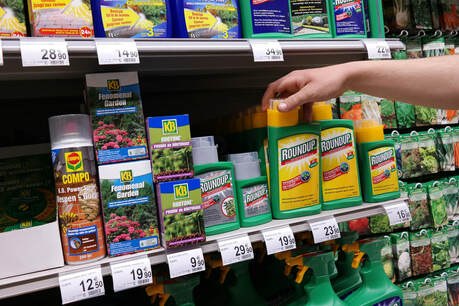 Common herbicides, pesticides, and insecticides can cause digestive symptoms, such as nausea, vomiting, diarrhea, intestinal pain, and other digestive issues. Glyphosate, the active ingredient in Roundup, is used to control weeds, especially in commercial growing. I'll focus on this herbicide as it's use is very controversial. Glyphosate works by being absorbed by the plant, through the soil and leaves, then blocking a metabolic pathway which inhibits the plant's growth. Genetically modified organisms (GMO's) are resisted to Roundup and survive. The weeds and other plants don't survive. It's suspected that glyphosate levels are increasing in wheat and other crops, even if they aren't genetically modified. Glyphosate may be a contributing factor to the rise of conditions such as celiac disease. This may be a result of the pathways and enzymes glyphosate disrupts. Reference Glyphosate may be making it's way into many common breakfast foods, even when they're organic. Reference This could be from run off into the water supply, from Roundup sprayed crops being used for animal feed, the use as a drying agent for some crops, and it's use in lawns and gardens. Glyphosate is an anti-microbial and is patented as an antibiotic. It has a negative effect on microbial population and the trouble comes when (non-beneficial) bacteria is killed and beneficial bacteria isn't put into it's place. 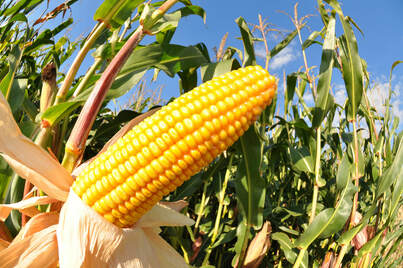 How can you avoid glyphosate? Glyphosate is found in conventional:
When buying animal products, make sure the feed consumed by the animals is not GMO or high glyphosate. The Environmental Working Group publishes a list every year of th foods with the highest amount of pesticides, called The Dirty Dozen. If you can't buy all organic, this list is great so that you can avoid the worst offenders. Toxins in your waterThese are just some of the common toxins found in drinking water. For a complete list, visit the Environmental Working Group's list of water contaminants here. Flouride - Flouride is a common additive to water that can harm the gut. Flouride levels can add up, especially if a person uses toothpaste and other fluoride containing dental products. There are a few studies suggesting a higher amount of neuro-develpmental issues when fluoride is used in the water supply. Reference Flouride can cause stomach issues, such as nausea and vomiting when consumed in large amounts. Flouride can be an enzyme disruptor, but this is often a case of bio-individuality. Sensitivity to fluoride can depend on your nutrition status and the volume of digestive fluids in your stomach. Reference. Chlorine - Chlorine is added to tap water to kill pathogens, but this might be at the expense of gut bacteria. Reference. I'm not suggesting that chlorine shouldn't be used in our tap water. Obviously, we want to keep harmful microbes out of our water supply, but we can also over-purify and kill off the good bacteria, too. Heavy metals - Heavy metals are found in our water supply largely because our water pipes are made of metal. Heavy metals such as lead can leech into your water supply from corroded pipes or fixtures. Heavy metals such as chromium, arsenic, cadmium, and mercury are byproducts of industrial pollution and can leech into municipal supplies. If you suspect you may have heavy metals leaching in from your pipes, you can have a plumber replace them. If their coming from outside your house read on. 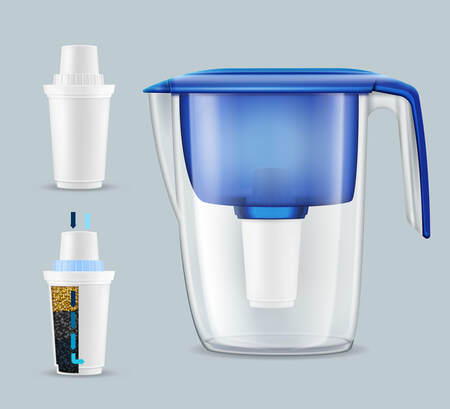 What to drink? After reading about the potential toxins in your drinking water, you may want to run out and buy some bottled water. That's not really the answer, though. Many types of bottled waters also contain chemicals and toxins, many of which leach into the water from the plastic in the bottles. An Environmental Working Group Study found an average of 38 chemicals in the top ten brands. The leaching of plastic has been shown to negatively effect the gut microbiome. Reference. While exercise can help to mitigate the effects of plastic, it's better to skip it. It's best to use a reusable glass or stainless steel water bottle to take with you when you're running around. Rather than use bottled water, it's cheaper in the long run to use a water filter at home. Charcoal filters help to filter out the chlorine and help reduce herbicides and pesticides in the water. Reverse osmosis water filters remove even more contaminants, but also waste water. You can also leave your water out for 24 hours or boil it to at least get rid of chlorine. The Environmental Working Group has a Tap Water Database for those in the United States, just enter your Zip Code and they'll show you what's in your water here. They also have an up to date water filter buying guide here. What about the air you breath? Air pollution can negatively effect the microbiome. This includes smog, exhaust, pollen, factory emissions, and other toxins in the air. I'll add smoke from fires into that list, too. I live in an area that has pretty clean air, but this past summer and fall especially, we were effected by the California wild fires even though most of them were several hundred miles away. It was a rude awakening to have so many days where we couldn't exercise outside and couldn't even let our kids ride their bikes to school. I'll be honest, I hadn't really experienced the negative impact before this past year, at least not for so many weeks. Air toxins add to the overall toxic load in your microbiome. The rising levels of air pollution might be another contributing factor of gut dysbiosis. It may be that air pollution can negatively affect short-chain fatty acid production, like butyrate, which alters the gut lining and can increase inflammation. This also contributes to gut permeability or leaky gut. Reference. What can you do to protect yourself from outdoor and indoor air pollution? To protect yourself from outdoor air pollution, avoid exercising outside when pollution or pollen levels are high, or if it's very hot outside. Also, try to stay off of high traffic streets when exercising outdoors (even when not exercising, if you can). To purify the air inside, try filling your home with houseplants. They naturally filter contaminants from the air. Look back to last weeks article for more on inside air pollution. Air purifiers can help as well, as long as you remember to change the filters often. Environment Working Group also has a download on The Top Tips for Better Air Quality. Antibiotics in the environment? Last but not least, did you know that the exposure to antibiotics doesn't just come from the pills from your doctor. 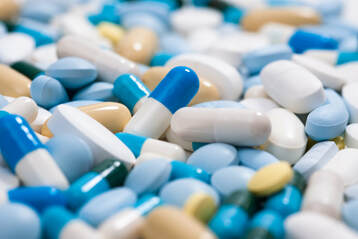 As you may know, antibiotics kill off the bacteria that might be making you sick and also kill off the good bacteria. Sometimes they really can be necessary and I know when my son was diagnosed with Osteomyelitis (a staph infection in his femur), I was grateful for the heavy duty antibiotics that quickly got rid of the infection. The downside is that antibiotics take a toll on your gut health and on how well you handle day to day toxicity that otherwise might not be a problem. That was definitely the case with my son. We had to be extra careful about any exposure to toxins, and when we were we noticed a huge improvement in his behavior. It's really important to repair the gut after antibiotic use and of course only use antibiotics when absolutely necessary. But like I said, the pills you get from your doctor aren't the only way to be exposed to antibiotics. Antibiotics are also commonly given to livestock, therefore are found in animal products. In fact, 80% of all antibiotics used are given to livestock. When buying animal products look for organic products that are completely antibiotic free. The claim of "no antibiotics added" can be misleading as it only means that they weren't administered. It doesn't account for antibiotics in the feed. Antibiotics can also be found in your water supply both from the excess that passes through our bodies and from pills flushed down the toilet. The improper use of antibiotics can result in the strengthening and overgrowth of certain strains of bacteria that are able to resist the threat of antibiotics. Try not be overwhelmed!Yes, I know it can seem like a lot. Environmental toxins can have a negative impact on the health of your gut microbiome, which studies are showing has a huge impact on your overall health. Polluted air and water, modern farming practices, and antibiotics can all add to your toxic load. But there's a lot you can do!
Take one step at a time, so you don't get overwhelmed. Before you know it, those steps add up to big changes! Next week, I'll be writing about the ways you can reduce the toxic load you may have already been exposed to and whether it might appropriate for you to "detox."
Be sure you've subscribed to my email list so you don't miss it!
0 Comments
Leave a Reply. |
Click below to join my FREE Facebook Group-
Women's Wellness Circle: Create Your Extraordinary Life AuthorHi, I’m Crystal! If you'd like to access my Farmer's Market Friday posts from 2018, click here!
Categories
All
|

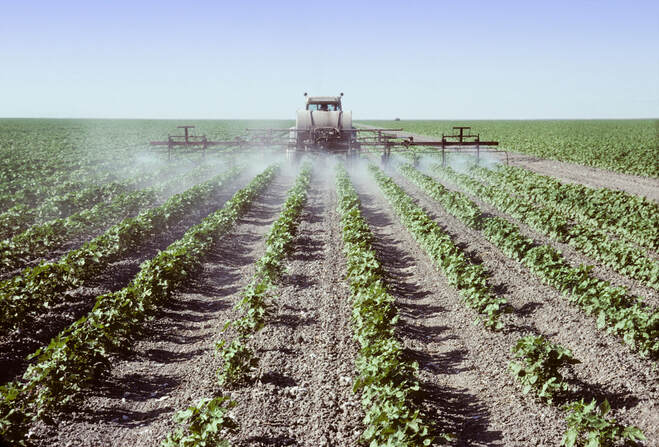


 RSS Feed
RSS Feed